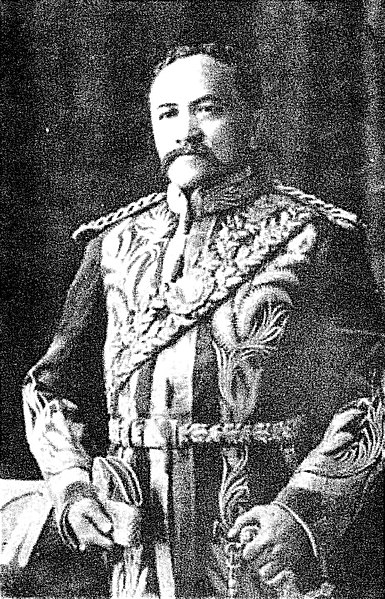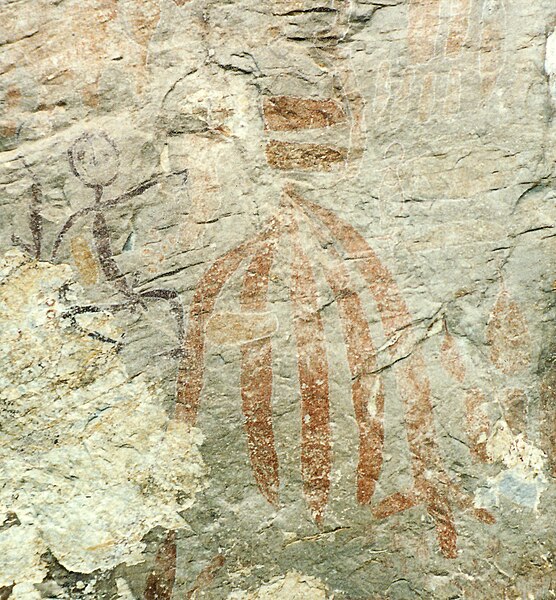The Pangkor Treaty of 1874 was a treaty signed between Great Britain and the Sultan of Perak on 20 January 1874, on the Colonial Steamer Pluto, off the coast of Perak. The treaty is significant in the history of the Malay states as it legitimised British control of the Malay rulers and paved the way for British imperialism in Malaya. It was the result of a multi-day conference organised by Andrew Clarke, the Governor of the Straits Settlements, to solve two problems: the Larut War, and Sultanship in Perak.
Sultan Abdullah of Perak
Perak is a state of Malaysia on the west coast of the Malay Peninsula. Perak has land borders with the Malaysian states of Kedah to the north, Penang to the northwest, Kelantan and Pahang to the east, and Selangor to the south. Thailand's Yala and Narathiwat provinces both lie to the northeast. Perak's capital city, Ipoh, was known historically for its tin-mining activities until the price of the metal dropped, severely affecting the state's economy. The royal capital remains Kuala Kangsar, where the palace of the Sultan of Perak is located. As of 2018, the state's population was 2,500,000. Perak has diverse tropical rainforests and an equatorial climate. The state's mountain ranges belong to the Titiwangsa Mountains, which is part of the larger Tenasserim Hills system that connects Myanmar, Thailand and Malaysia.
The Tambun rock art of the Neolithic era in Tambun near Ipoh
Iron socketed axe from Perak, British Museum, c. 100 BC–AD 200
The 1670 Dutch Fort on Pangkor Island, built as a tin ore warehouse by the Dutch East India Company
Semang from Gerik or Janing, Perak, 1906





